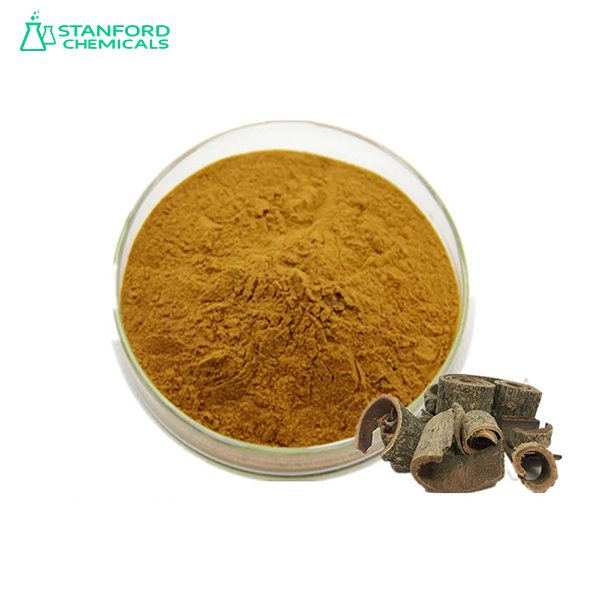
Honokiol is a compound readily available on the bark of magnolia trees. This powerful bioactive compound has been a main traditional medicine in Asian communities for centuries. In China, the bark of the magnolia tree has been used to treat gastrointestinal complaints, thrombotic stroke, and anxiety. Honokiol offers multiple cellular health actions besides long-term benefits naturally and safely.
Mechanisms of action
Honokiol works in multiple modes to support immunity, metabolic health, cellular health, and neurological health. It also operates as an antioxidant which is 1,000 times more potent compared to vitamin E. Apart from its anti-thrombosis quality, it has significant anti-inflammatory properties. This makes it ideal for regular exercise-induced inflammations. In addition to possessing anti-anxiety properties that can effectively relieve anxiety and stress, it is an excellent antibacterial agent.
These are important factors in the maintenance of cardiovascular, cellular, and overall health. As further research is carried out, more remarkable applications of honokiol are being discovered. For instance, a recent study showed that the compound supports musculoskeletal health by enhancing the body’s mineralization and bone growth. Honokiol is a substituted biphenyl that exhibits xanthine oxidase inhibitory, neurotropic, and anxiolytic effects.
Pure honokiol has remarkable synergistic capabilities. When elements interact and their resultant effect when combined is greater than the sum of both of them, it is referred to as synergy. Honokiol has been proven to enhance the benefits achieved by other therapies. Rarely do we find a single ingredient that is jam-packed with benefits for wellness and long-term health. Pure honokiol is a unique compound becoming a vital supplement. It is increasingly recommended by more health practitioners as they are sure of its safety and numerous benefits. Together with a handful of key therapeutic substances like modified citrus pectin and other well-researched natural solutions, it offers multiple benefits for long-term health.
Honokiol anticancer qualities
Early in the 1990s, honokiol (HNK) was first reported to have anticancer effects. Scrutiny was conducted on a list of almost 28 synthetic and natural flavonoids and 11 ligands on the human leukemia cell. When the cytotoxicity of the compounds was analyzed against 4 clinical anticancer agents, none of them proved to be more potent than HNK. It was demonstrated that HNK was capable of inducing apoptosis in the human lymphoid leukemia cells.
By inhibiting tumor growth in an in vivo animal model that represents human colon cancer growth, HNK prolonged the life of tumor-bearing mice. HNK is not only an inhibitor of antitumor activity in vivo, but also an inhibitor of angiogenesis. By blocking phosphorylation of the vascular endothelial growth, it acts as both an antitumor and angiogenesis agent. It has also been demonstrated to be very effective against angiosarcoma in experiments with nude mice in vivo.
Honokiol is used in combination with other elements to form medicinal compounds. Such compounds of HNK can be used to treat conditions such as neoplastic, angiogenic, and cancer-related conditions. 5-allyl and 4 hydroxyl groups are essential components of such compounds. Other elements in such compounds include hydrocarbons, organ selenium compounds, benzyl, sulfides, carbonyl, ether, etc. Magnolol and magnolol-type compounds have been demonstrated to inhibit SVR cell proliferation.
Honokiol medical inventions
These inventions offer honokiol derivatives and pharmaceutical products composed of HNK derivatives. It also contains methods of using them effectively. The compounds and compositions can be used in multiple ways to inhibit tumor growth, angiogenesis, cell proliferation, and tumorigenesis. They can also prevent or treat cancers like multiple myeloma (MM) and leukemia. The inventions are based on the discovery that HNK can induce apoptosis of cancerous cells via a caspase-independent mode. Treatment of other proliferative conditions like noncancerous tumors is also covered in these inventions.
One recent study indicated that the growth of MM cells was inhibited by honokiol. This was made possible by halting the induction of GI growth. It was also observed that the growth of doxorubin was also inhibited by HNK.
Honokiol was reported to induce caspase-dependent apoptosis in the B-cells of chronic lymphocytic leukemia (B-CLL). The caspase-dependent cell death induced by HNK in all the B-CLL was examined. These were primary tumor cells obtained from a B-CLL patient. HNK was more toxic to B-CLL cells compared to the normal mononuclear cells. Activation of caspase triggered the HNK-induced apoptosis. HNK also enhanced cytotoxicity. This was induced by chlorambucil and other elements.
Conventional drug resistance was overcome by honokiol in human MM. This was enabled through the induction of caspase-dependent and independent apoptosis. HNK induced cytotoxicity in the tumor cells and cell lines of patients suffering from human MM. This happened as a result of the induction of apoptosis through the caspase-dependent and independent pathways. MM cell apoptosis and cytotoxicity were also enhanced by HNK.
This invention is aimed at providing new compositions, compounds, methods, and treatment uses. Possible treatments include disorders linked with angiogenesis, tumor growth, cell proliferation, myeloma, and tumorigenesis.
